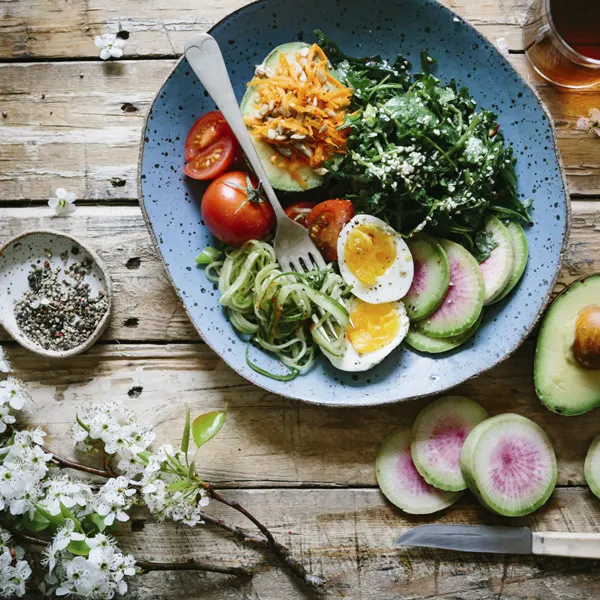Mindful nutrition
for life
Health and diet
We are drowning in messages about health and well-being, especially when it comes to diet. Diets for rapid weight loss. Avoid gluten, or whole grains should be your most essential staple. Anti-inflammatory diet is the key, or there’s no scientific evidence to support the effects of anti-inflammatory diets. Detox. Juice cleanse. Do periodic fasting. Sugar is bad, sweeteners are cancerogenic. Fruit is super healthy, or fruit is just sugar and sugar is, again, the devil. The ketogenic diet is the best choice for longevity, or a vegan diet is absolutely superior.

Diets for rapid weight loss. Avoid gluten, or whole grains should be your most essential staple. Anti-inflammatory diet is the key, or there’s no scientific evidence to support the effects of anti-inflammatory diets. Detox. Juice cleanse. Do periodic fasting. Sugar is bad, sweeteners are cancerogenic. Fruit is super healthy, or fruit is just sugar and sugar is, again, the devil. The ketogenic diet is the best choice for longevity, or a vegan diet is absolutely superior.
Do you recognize this? It’s no wonder we get confused! So, how do we figure out what is truly healthy with all these contrasting opinions? Many of us want to know, because we want to feel good and we do understand to some extent that the food we eat and our lifestyle affect our bodies. We want to live long, enjoy life, and avoid potential health issues later on if possible.
But first and foremost, there’s no one-size-fits-all approach, even though media headlines might suggest otherwise. There are also attempts to create recommendations on a population level, which serves a purpose, but these are primarily aimed at healthy adults. However, some food for thought is: who really qualifies as healthy or sick today?
Can we generalize so broadly about needs for large groups of people? No, these recommendations also have their limitations, which is why I work with holistic health perspectives that look at both the society and individual levels. The context of personal factors – what each person wants and needs – and community factors – general patterns highlighting collective challenges and resources.
In short, my philosophy is that I don’t label food as:
- “healthy” and “unhealthy”
- “good” and “bad”
- “right” and “wrong”
- “clean” and… what-is-even-the-opposite-word-of-clean-here? “Dirty” food? It’s not, and I simply and strongly oppose this.
Instead, I focus mainly on what type of nutritional content the foods have. Anyone generally benefits from a foundation with lots of nutrients from quality, whole foods.
At the same time, foods with less nutrients have other qualities. It is important to remember that nothing is ever black or white! For instance, personally I want to be able to eat what I feel like eating, sometimes for other reasons than nutritional content. The food I love that sparks joy, for example. Sometimes that includes ice cream, pastries, and hamburgers – because I feel good having them in my diet. And when I do, I make sure to enjoy them.
It has to work in the long run, and for me and my health, this is what I believe is healthy. Consider what aspects are important for you also – for example among nostalgic, economic, energy-dense, traditional, social, or cultural factors.
Navigating this health journey needs to be anchored in sustainable, long-term visions on what works for each one of us, but it can also be helpful to have some guidance along the way. That’s something I’d love to help you with. I’m here – reach out and let’s connect!
